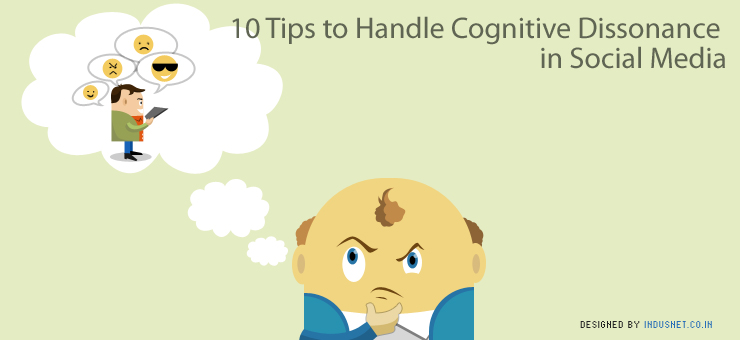
Our abilities to think, understand, process what is understood, making decisions and then reflecting on our thoughts entail cognitive processes. Our cognition is hampered when we are constantly exposed to information we think we should pay attention to. What results is a state of continuous partial attention, which reduces our performance and efficiency. Most importantly, creativity ceases to exist and we lose our abilities to arrive at novel solutions.
Information overload also leads to a state of fatigue where one just doesn’t want to learn anything new and nothing surprises the person. However, what is not recognized is the issue of cognitive dissonance arising from exposure to opposing views on social media. It can easily be understood as reactionary behavior that we later regret, on account of reading tweets, shared links on Facebook or elsewhere about opposing thoughts, views and opinions.
When we are exposed to differing opinions on social media, and we are not able to choose which the right one is, we experience cognitive dissonance. Some of the emotions that we experience as a result of cognitive dissonance are dread, guilt, anger, frustration, anxiety, stress, etc. Most of us are aware of our belief systems. However, when we realize that there may be a grain of truth in another person’s views and opinions, it conflicts with our own beliefs. Such cognitive dissonance caused by social media can needs to be identified, targeted and ‘treated’, as psychologists would put it.
Research has shown that extraverts tend to respond to cognitive dissonance more effectively than introverts. Extraverts do not let opposing thoughts and feelings affect them as much as introverts do. Introverts on the other hand may feel that they need to align their thoughts and opinions according to the norms and may end up hurting themselves. This behavior is more evident online and on social networking sites where people continue to bombard others with differing thoughts and opinions.
To tackle cognitive dissonance, you may take a few steps.
People often do not understand that social media and marketing communications are based on human psychology and psychological theories have a profound effect on many decisions that executives take. While using social media too, we can witness a number of theories that are explained in social psychology.